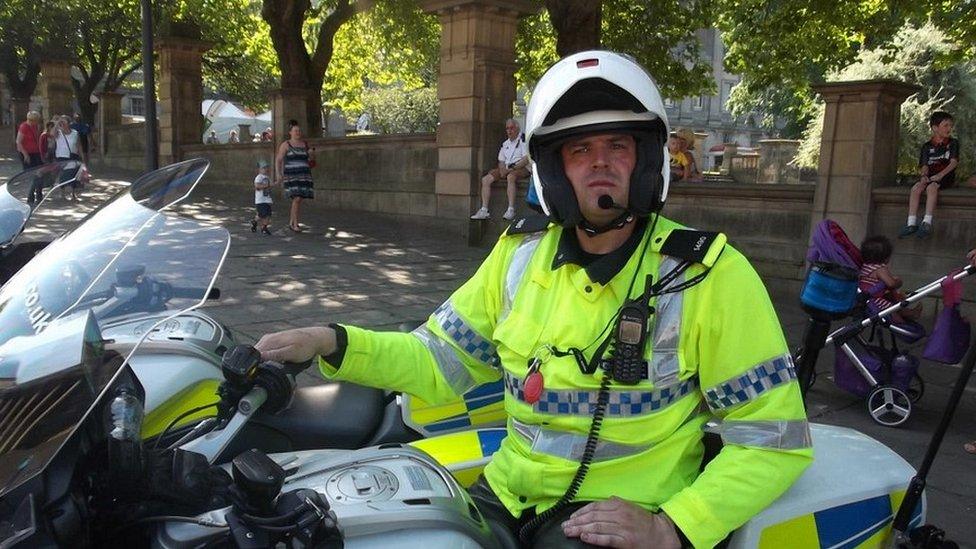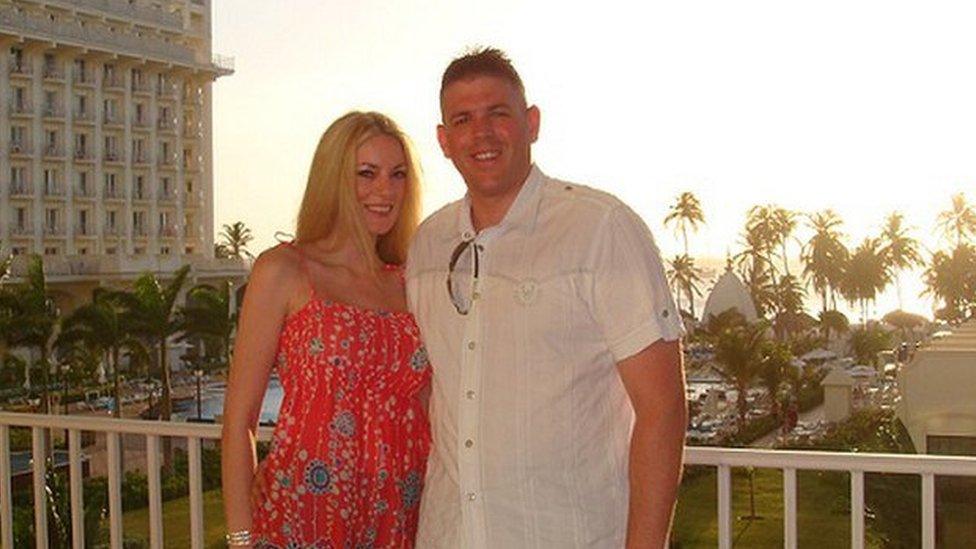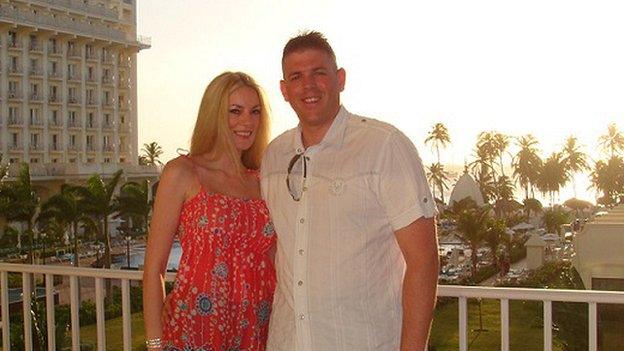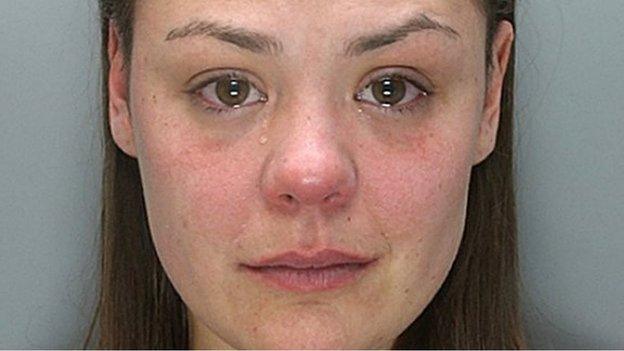PC Paul Briggs: Wife asks court to end life support 'hell'
- Published

PC Briggs's wife told the court he valued his independence
The wife of a police officer left in a coma after a crash has asked a court to withdraw his life-support treatment as he would have seen living as "hell".
Paul Briggs, 43, of Merseyside, suffered a brain injury in a crash in July 2015.
Lindsey Briggs told Manchester Court of Protection he would not have wanted to live and would have been "horrified knowing his daughter was scared of him".
Doctors are opposing the application.
Mr Briggs, a Gulf War veteran, suffered a bleed on the brain, five fractures in his spine, bruising to internal organs and several other severe injuries in the collision and is being kept alive through medical intervention.
His wife and mother to his daughter Ella, five, said he did not recognise her or respond to her when she went to see him.
The court heard medical experts predicted even in a best case scenario, PC Briggs would remain severely physically disabled and could live nine or 10 years.
Mrs Briggs said he valued his independence and having this taken away would be "torture" for him.

Lindsey and Paul Briggs have a five-year-old daughter
She said: "I think he would see it as torture, just as hell, that everything he believes in and he lives for would just be taken away from him.
"He would be living for no reason."
Mrs Briggs told the court her husband had been active, sociable and a "hands on father" before the crash.
When asked what her husband might think of his situation now, she said he would be horrified and "horrified for his daughter, that she's scared of him".
PC Briggs's mother, Jan, said she agreed with her daughter-in-law, adding it was "very, very difficult" to see him as he is now.
She told the court: "I just don't want him to suffer any more."
Conrad Hallin, representing Walton Centre NHS Foundation Trust and Wirral Clinical Commissioning Group, said doctors had noticed some signs of improvement in his condition.
Chelsea Rowe, 26, was given a 12-month prison term in July after admitting causing serious injury to PC Briggs by dangerous driving in Birkenhead.
The hearing, expected to last four days, continues.
- Published1 November 2016

- Published8 July 2016
